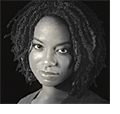By Jacqueline J. Holness
 With the dawning of a new year, it is time to put away the previous year’s days, whether dominated by joy or permeated with sadness or an equal measure of the two, and clear away room for what is ahead. I mostly feel optimism about the new year, but hidden beneath my optimism is a sliver of fear about what will unfold.
With the dawning of a new year, it is time to put away the previous year’s days, whether dominated by joy or permeated with sadness or an equal measure of the two, and clear away room for what is ahead. I mostly feel optimism about the new year, but hidden beneath my optimism is a sliver of fear about what will unfold.
This will be the last year that President Barack Obama, our nation’s first black president, will inhabit the White House. When Obama was first elected in 2008, I was in Ebenezer Baptist Church, the church of slain civil rights leader Rev. Dr. Martin Luther King Jr. The motif of the dreamer and the realization of that dream was not lost on me. With President Obama’s election, it would seem that the end of racism and racial strife was imminent, but sadly, as we all know now, that has not been the case.
Debate
In 2012, in response to neighborhood watch volunteer George Zimmerman shooting and killing Trayvon Martin, several activists created the social media hashtag #blacklivesmatter. In response to a number of deaths of unarmed black Americans since that time, the Black Lives Matter movement has grown.
However, in 2015, the term “black lives matter” provoked the ire of Mike Huckabee, former Arkansas governor and presidential candidate, who said that Dr. King would be “appalled” by the Black Lives Matter movement, according to a 2015 CNN article by Eric Bradner. In contrast to Huckabee’s statement about Dr. King, the editorial board of The New York Times wrote an opinion piece “The Truth of ‘Black Lives Matter,’” saying that Dr. King worked specifically to “end state-sanctioned violence against African-Americans” and “acts of racial terror very much like the one that took nine lives at Emanuel African Methodist Episcopal Church in Charleston, South Carolina, in June.”
Huckabee also noted, “When I hear people scream, ‘black lives matter,’ I think, ‘Of course they do.’ But all lives matter. It’s not that any life matters more than another” (The Situation Room). Harris County, Texas Sheriff Ron Hickman agreed. Hickman said his deputy Darren H. Goforth was shot and killed at a gas station because he was a target. He told The New York Times that the Black Lives Matter movement has led to an anti-police sentiment, provoking violence against law enforcement. “We’ve heard ‘black lives matter.’ All lives matter. Well, cops’ lives matter, too. So why don’t we just drop the qualifier and just say ‘lives matter,’ and take that to the bank.”
Affirmation Needed
The Black Lives Matter movement has various nuances, and although I am not a member, the term “black lives matter” is not offensive to me. I liken it to the 1960s saying, “black is beautiful.” It was not stating that other races and cultures were not beautiful; it was simply a catchy affirmation needed at the time to dispel the widely held notion that black was not beautiful. “Black lives matter” is another succinct saying to affirm that black lives indeed do matter, particularly as black lives are disproportionally the target of law enforcement and the penal system.
In a recent article, Ta-Nehisi Coates compared a decade of statistics, noting “in 2000, one in 10 black males between the ages of 20 and 40 was incarcerated—10 times the rate of their white peers. In 2010, a third of all black male high-school dropouts between the ages of 20 and 39 were imprisoned, compared with only 13 percent of their white peers” (The Atlantic article “The Black Family in the Age of Mass Incarceration”).
Church Involvement
Sadly, in this fallen world, I don’t know if Dr. King’s dream of ending racism and racial strife will ever come true, but that does not give us an excuse to turn away from rather than address these thorny issues.
People from a variety of denominations have participated in the discussion. Here are two examples: Paul Lutz of Trinity Evangelical Lutheran Church in Lansdale, Pennsylvania, said that their church was criticized after the “Black Lives Matter” slogan was posted on its sign last August. Still, despite the calls and emails, the church held a forum about the issue, which included members of the Black Lives Matter movement. In 2014 two denominations that were once separated by segregation, the Church of God in Christ and Assemblies of God, joined together to host a “Black Lives Matter Sunday.”
How do you think members of Restoration Movement churches could get involved in their own communities on this matter? Hopefully churches will continue to find ways to unify and make a difference to combat racism and racial strife in the new year and beyond.
Jacqueline J. Holness, a member of Central Christian Church in Atlanta, is a correspondent for Courthouse News Service, an online, national news service for attorneys. Read more on her website (afterthealtarcall.com).



Comments: no replies